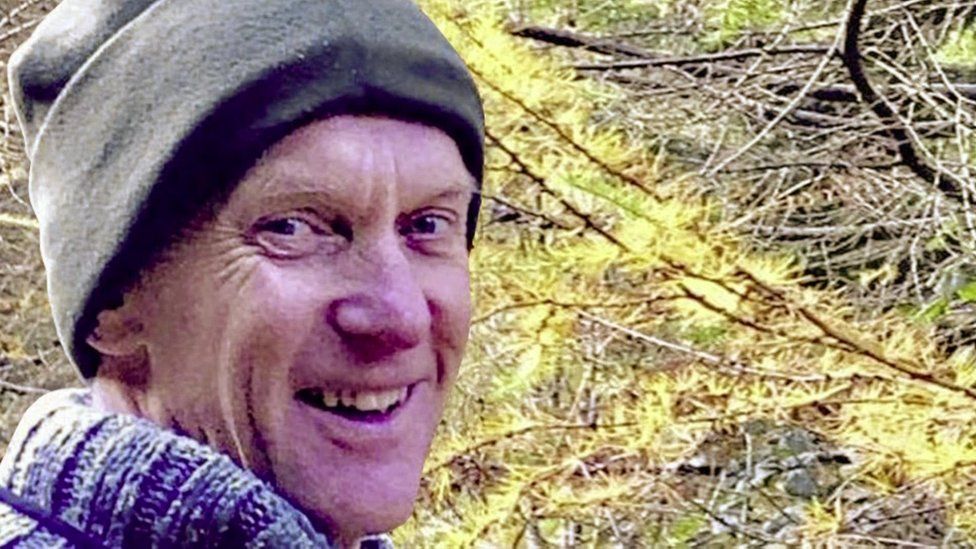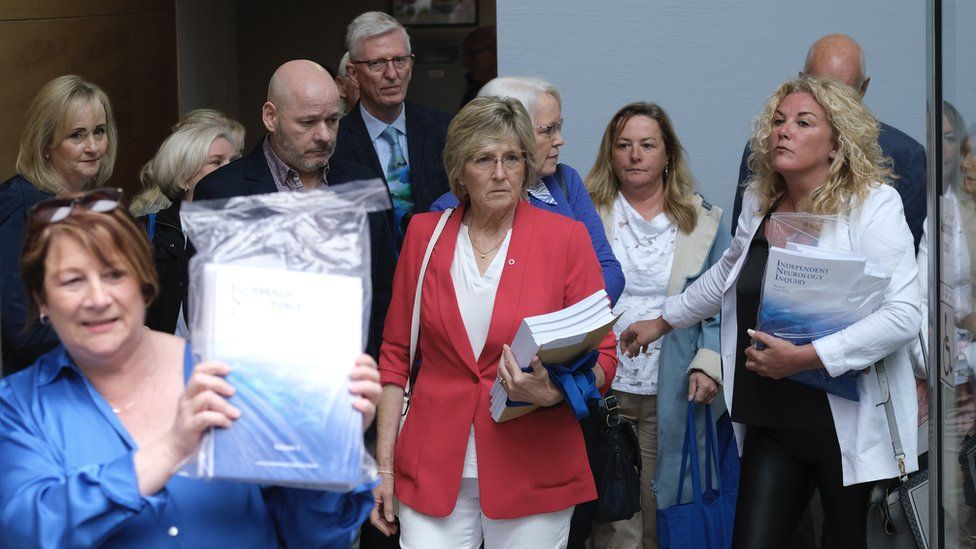
A review of the clinical records of 44 patients who died under the care of former neurologist Michael Watt has found “significant failures in their treatment” and “poor communication with families”.
While this review looked at a sample of 44 deceased cases potentially thousands more could be affected.
The review arises from a 2018 recall of 2,500 outpatients who were in Dr Watt’s care at the Belfast Health Trust.
He worked there until 2017.
About one in five patients had to have their diagnoses changed.
This separate review into 44 deaths was conducted by the Royal College of Physicians at the request of the regulator, the Regulation and Quality Improvement Authority (RQIA).
It highlighted concerns over clinical decision-making, prescribing and diagnostics.
It reveals a misdiagnosis rate of 45% among this group of patients, twice that for living patients.
Speaking to BBC News NI, the RQIA’s chair, Christine Collins, said the outcome of the review was “shocking and gut-wrenching as so many had experienced unpleasant deaths which they ought not to have done”.
In a litany of complaints, the panel said Michael Watt was often a poor record keeper, that he did not refer to patient notes which were often kept on scraps of paper and that cases were not taken seriously.
He was also found to be “rude and unhelpful”.
The review into deaths was limited and has been likened to a pilot project.

Its terms of reference was also limited which meant the panel was confined to how much they could investigate.
It is also unprecedented as no other review on this scale has been carried out on patients in Northern Ireland who died under the care of one doctor.
In almost half the cases reviewed the panel did not consider the diagnosis to have been secure; also they noted in several cases the review of death certification, or referral to a medical examiner or coroner, was recommended.
Potentially that could mean the re-opening of some cases by the coroner if he is approached by families to do so.
‘Deep human impacts’
Christine Collins thanked all those who had taken part in the review which she acknowledged had been difficult.
“Family accounts starkly illustrate how failings by an individual practitioner, and by the system, led to deep human impacts and resulting harm, both to the deceased patients and to their bereaved families,” she said.
An independent inquiry and a separate review of those people who had died while in Michael Watt’s care was launched in 2018.
- Neurology patient recall report published
- Trust ‘not quick enough’ on neurology misdiagnoses
Earlier this year, the inquiry found there were numerous failures, that opportunities were missed by the Belfast Trust to identify problems with the neurologist’s practice and that earlier intervention by the trust would have “made a difference”.
This latest review into deaths also identified concerns or omissions and their potential to lead to harm in almost half of the cases examined, including that some treatments were unnecessary and invasive.
Also in several cases, the review team believed patients had been “denied holistic supportive care that may have made their condition and ultimately end of life care, easier to manage”.

In October last year, Dr Watt was removed from the medical register after he made a voluntary application – meaning allegations about his work could not be heard in a tribunal by the General Medical Council (GMC).
Since the launch of the inquiry in 2018, the focus has been on the experience of both patients and families.
Both the independent inquiry and the review of deceased patients found communication between Michael Watt was poor, as was communication with other consultants.
The panel found that the overriding theme of Dr Watt’s clinical records tended to be “brief.”
However correspondence with private patients held in his private clinics was found to be a lot more “detailed.”
A number of recommendations were made including:
- That the RQIA will need to consider the implication of the finding that 14 of the 29 cases were found to be unsatisfactory for its wider consideration of the cases included in the recall of patients who died.
- That the RQIA should consider the potential for harm arising from the concerns identified by the review team with respect to 13 patients’ cases.
The PSNI said police were currently considering the findings of the various reviews and investigations, namely: the General Medical Council, The Royal College of Physicians, the RQIA and the Independent Neurology Inquiry.
“We will continue to liaise with the RQIA, Department of Health and Public Prosecution Service and will consider all relevant material before determining whether or not it will be necessary to conduct a formal investigation,” a spokesperson said.
-
Trust ‘not quick enough’ on neurology misdiagnoses
-
21 June

-
-
‘Dr Michael Watt and the Belfast Trust failed us’
-
21 June

-
-
Fifth of neurologist’s patients misdiagnosed
-
20 April 2021

-
-
Neurology patient recall report published
-
19 December 2019

-
-
Recall neurologist will not appear at inquiry
-
26 July 2021

-
